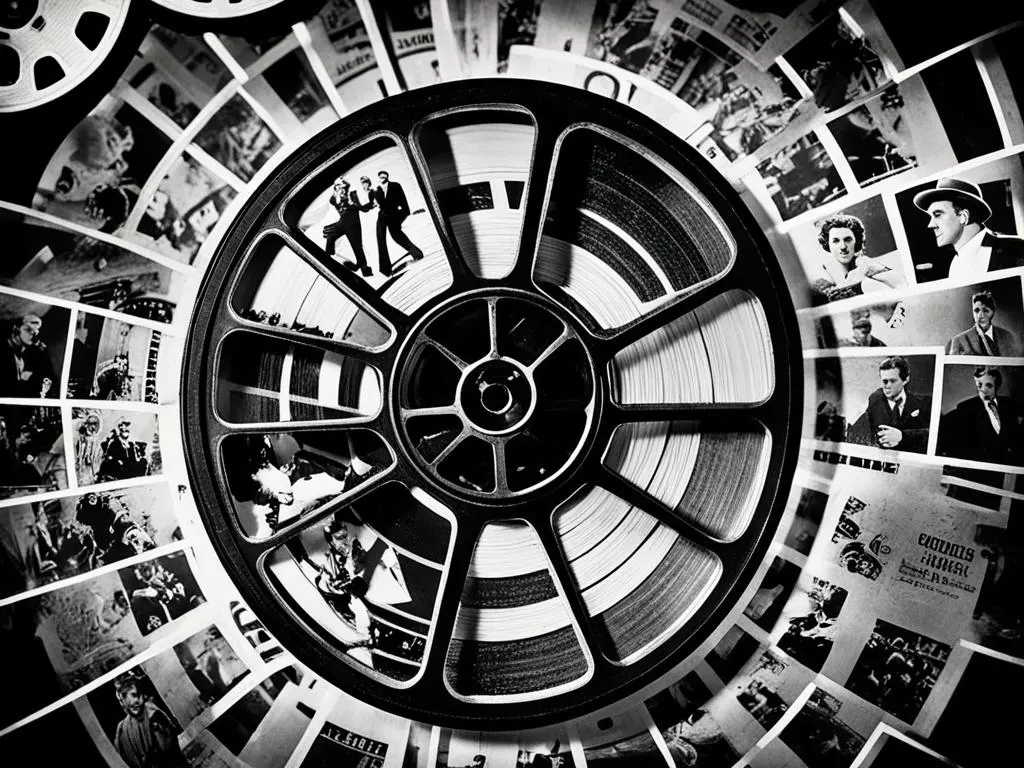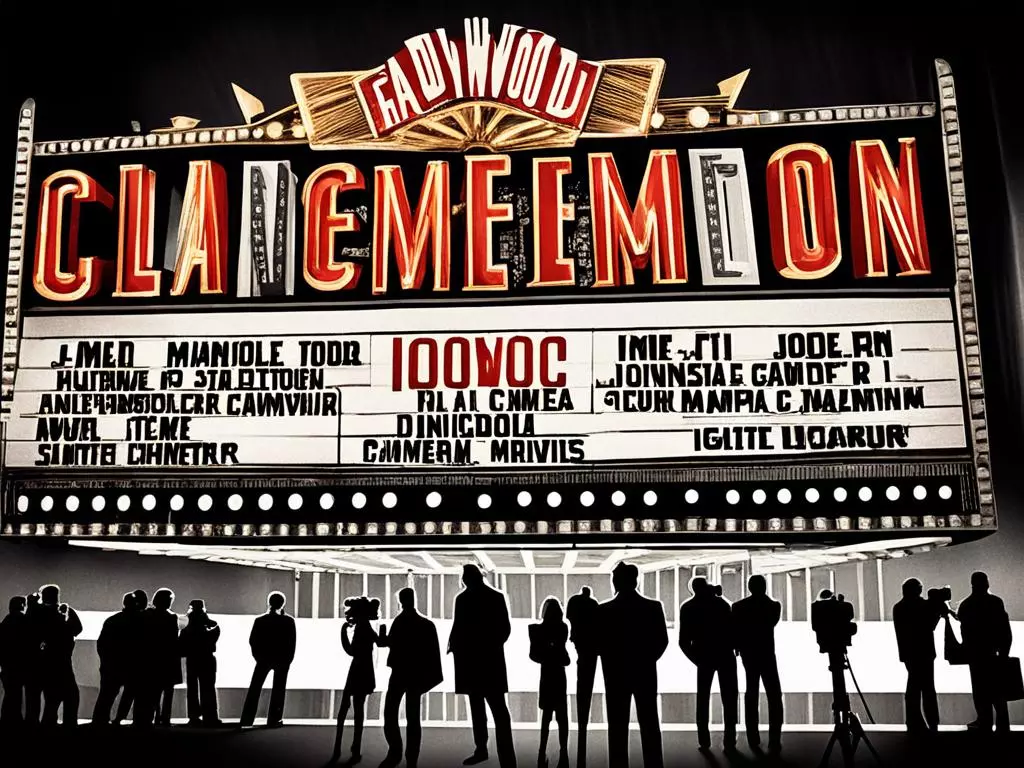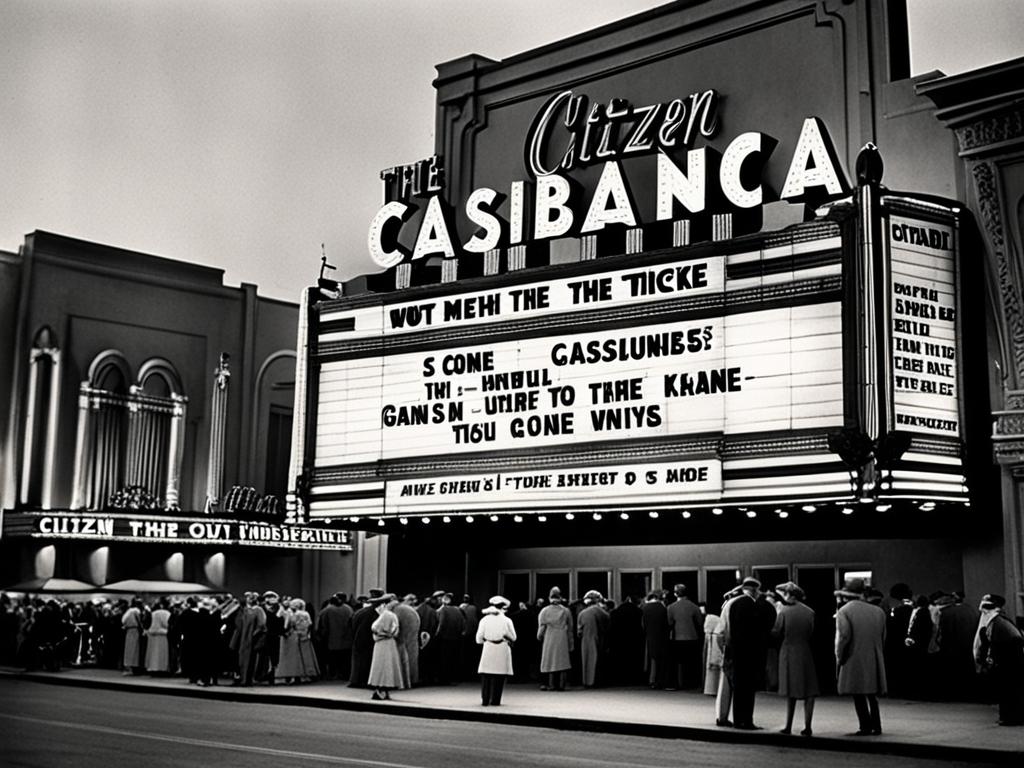Adverts
Welcome to the fascinating world of classic films! In this series of articles, we will explore the Cinema's history and discover the incredible cinematic legacy that some masterpieces manage to leave behind.
Adverts
Cinema classics These are films that transcend time and continue to enchant generations, even decades after their release. They are true masterpieces that stand the test of time, leaving us amazed by their narrative, remarkable performances and timeless themes.
A Cinema's history is full of classic films which became references for the film industry and influenced generations of filmmakers. These masterpieces not only entertained audiences, but also shaped popular culture, conveying universal values and inspiring new ways of telling stories.
Throughout this series, we will explore how classic films exert a lasting influence on culture, we will discuss the Cinema's history and we will highlight the renowned directors who contributed to the development of this art.
Adverts
Let's embark on this cinematic journey together and dive into a world of emotions, discoveries and reflections. Get ready to explore the treasures that cinema classics have to offer and understand why they remain relevant today.
Stay tuned for the next article where we will discuss the cultural influence of these masterpieces and how they became pillars of the seventh art.
The Cultural Influence of Classic Films
Classic films have a lasting influence on popular culture. Over the years, these masterpieces have had the power to shape trends, inspire new filmmakers and convey universal values.
They become part of the collective imagination, crossing generations and remaining relevant even decades after their release. Through engaging stories and striking characters, classic films capture the essence of the human experience, touching our sensibilities and generating reflections on life and society.
A cultural influence of classic films goes beyond the movie theater. Their narratives have the power to establish cultural references, propagate fashions and even inspire artistic movements.
“Cinema classics can be seen as a mirror of society, reflecting its values, challenges and aspirations. They transport us to different times and places, enriching our understanding of the world around us.”
Furthermore, classic films influence and guide contemporary filmmakers, who find inspiration in the techniques, themes and narrative approaches of these iconic works. O cinematic legacy of classic films is tangible in current productions, which often seek to pay homage and be inspired by these films that marked the history of cinema.
When watching a classic film, we are invited to reflect on the universal issues that permeate the human condition. These works transcend time and cultural barriers, connecting people from different backgrounds around powerful and meaningful stories.
A cultural influence of classic films is undeniable and its cinematic legacy It has endured over the decades, continuing to enchant and captivate new generations. They are true jewels of the seventh art, capable of transporting us to extraordinary worlds and touching us on a deeper level.

The Cinema Classics that Stand the Test of Time
The History of Cinema and Renowned Directors
In this section, we will dive into Cinema's history, highlighting the renowned directors who contributed to the development of the seventh art and to the creation of memorable films that last to this day.
Cinema is a form of artistic expression that has a rich and fascinating trajectory over the years. From the first experiments with moving images to contemporary technological advances, the history of cinema reflects the evolution of society and cultural values.
Big names in world cinema Along this path, directors emerged who became true references in the field of film production. Pioneers like Georges Méliès, creator of innovative works such as “Journey to the Moon” (1902), marked the beginning of this cinematographic journey, paving the way for films of different genres and styles.
“Cinema has no borders or limits. It’s a constant flow of dreams.” – Orson Welles
The filmmaker Alfred Hitchcock revolutionized suspense in cinema with works such as “Psycho” (1960), while Stanley Kubrick made his name in history with films such as “A Clockwork Orange” (1971) and “2001: A Space Odyssey” (1968). Others renowned directors, as Federico Fellini, Akira Kurosawa It is Ingmar Bergman, also left a significant legacy on the cinematic scene.
These talented directors have managed to capture the essence of the human condition, exploring universal themes such as love, fear, hope and redemption. His films transcend eras and cultures, continuing to captivate audiences around the world.
Modern cinema also has renowned directors that are shaping today’s cinematic narrative. Personalities like Christopher Nolan, Quentin Tarantino It is Martin Scorsese are examples of contemporary filmmakers who are leaving their mark in the world of cinema.
These renowned directors have not only influenced the way films are made, but they have also inspired future generations of filmmakers to tell authentic and impactful stories. His legacy is a testament to the importance of cinema as a lasting art form, capable of stimulating emotions, questioning conventions and promoting reflection on relevant themes.

The Impact of Renowned Directors on World Cinema
Renowned directors play a fundamental role in building the identity of the world cinema. His innovative and insightful visions enrich the diversity and quality of film productions, establishing aesthetic and narrative benchmarks that shape the film industry as a whole.
Furthermore, these directors have the power to impact popular culture and influence trends. His works often become cinema classics, earning recognition and adoration from viewers around the world.
Therefore, it is essential to recognize and value the contribution of renowned directors to the history of cinema and to the preservation of cinematographic legacy. His masterpieces continue to inspire and entertain current and future generations, perpetuating the magic and power of cinema.
Conclusion
Cinema classics They are true masterpieces that stand the test of time and leave a lasting cinematic legacy. Whether for their engaging narrative, technical dexterity or cultural influence, these films are treasures that deserve to be appreciated and preserved.
The history of cinema is enriched by these gems, which span generations and continue to enchant viewers of all ages. They transport us to imaginary worlds and make us reflect on universal issues, moving and inspiring us to this day.
Furthermore, cinema classics have a significant cultural influence. They shape trends, inspire new filmmakers and are undeniable references within the film industry. Its impact goes beyond the big screen, influencing art, fashion, music and even social behavior.
Therefore, we must value and celebrate these masterpieces of cinema, recognizing their importance in the history of cinema and their contribution to world culture. Cinema classics stand the test of time, cross borders and leave a legacy that will never be forgotten.

